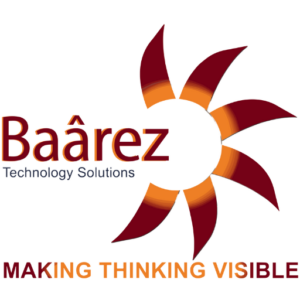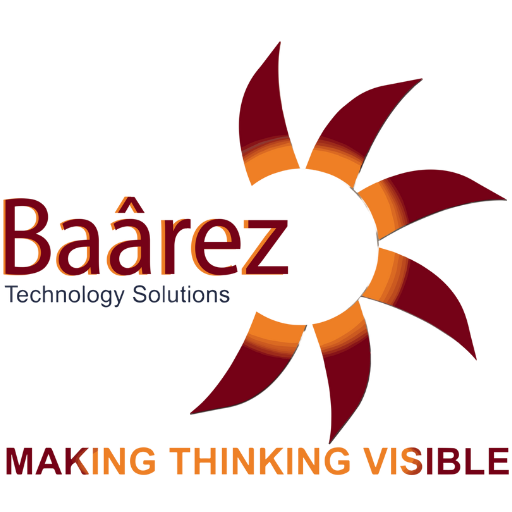
Table of Contents
ToggleIntroduction to ERP Implementation
ERP (Enterprise Resource Planning) systems have become pivotal in transforming the manufacturing industry, offering unparalleled efficiency and integration. As of 2024, these systems have evolved to address complex manufacturing needs, making ERP consulting services crucial for businesses aiming to stay competitive. This blog explores the nuances of ERP implementation, focusing on the role of ERP consulting firms, particularly Baarez Technology Solutions, in the UAE and Qatar. Readers will gain insights into strategies, challenges, and benefits associated with ERP implementation.
Understanding ERP Systems
ERP systems integrate various business processes into a single unified system, encompassing modules like inventory management, finance, HR, and production planning. For manufacturing, ERP consulting companies provide solutions that streamline operations, enhance productivity, and offer deeper insights into business processes. An Enterprise Resource Planning consultant helps tailor these systems to meet specific industry needs, ensuring seamless integration and optimal performance.
Benefits of ERP Implementation in Manufacturing
Implementing ERP for manufacturing industries offers numerous benefits. It enhances operational efficiency through automation, leading to higher productivity and simplified IT infrastructure. ERP software consulting provides deeper insights through integrated data, facilitating accelerated reporting and better decision-making. Additionally, ERP systems lower risks by ensuring compliance and providing robust risk management solutions, ultimately improving business agility.
Key Considerations Before Implementation
Before implementing an ERP system, businesses must align their goals with the chosen solution. Selecting the right ERP consulting firm, such as Baarez Technology Solutions, is crucial. Factors to consider include the scalability and flexibility of the ERP system, customization needs, and total cost of ownership. Engaging an experienced ERP implementation consultant ensures that the system meets the company’s strategic objectives and integrates seamlessly with existing processes.
Implementation Process
Successful ERP implementation involves meticulous planning and preparation. ERP consultancy services start with setting clear objectives and preparing the organization. A dedicated project manager oversees the process, ensuring efficient data migration and employee training. ERP consulting firms emphasize thorough testing before the system goes live and provide ongoing post-implementation support to ensure smooth operation and quality control.
Common Challenges and Solutions
Challenges in ERP implementation include resistance to change, data quality issues, and underestimating time and costs. An experienced ERP solutions provider like Baarez Technology Solutions can address these challenges by fostering a culture of change, ensuring data accuracy, and providing realistic planning and budgeting. Involving an Enterprise Resource Planning consultant early in the process can mitigate risks and streamline the implementation.
Service Features and Offerings
Service Features:
- Higher Productivity: Automation of routine tasks, reducing manual workload.
- Deeper Insights: Real-time data analytics for informed decision-making.
- Accelerated Reporting: Quick generation of accurate reports.
- Lower Risk: Enhanced compliance and risk management features.
- Simpler IT: Consolidation of IT systems into a single, user-friendly platform.
- Improved Agility: Flexible systems that adapt to changing business needs.
Service Offerings:
- Procurement: Streamlined sourcing, contracting, and procure-to-pay processes.
- Supplier Management: Efficient management of supplier relationships.
- Planning: Integrated supply and demand planning.
- Finance and Operation: Comprehensive financial management, including accounts payable, receivable, revenue management, and more.
- Supply Chain: End-to-end supply chain management, including procurement, logistics, and manufacturing.
- Enterprise Data Management: Robust data management and connected planning solutions.
Our Approach
Baarez Technology Solutions follows a structured approach to ERP implementation:
- Enquiry: Understanding the client’s requirements and objectives.
- Meet Experts: Detailed discussions with ERP experts to design a tailored solution.
- Design & Documentation: Creating a comprehensive implementation plan and documentation.
- Seal the Deal: Finalizing the agreement and setting timelines.
- Execution & Quality Control: Implementing the ERP system with rigorous quality checks.
- Quality Check & Handover: Ensuring everything is in place before handing over the system to the client.
Case Studies of Successful ERP Implementations
Background
A mid-sized manufacturing firm in the UAE, specializing in automotive parts, faced significant operational challenges. The company struggled with fragmented data systems, inefficient processes, and lack of real-time visibility into operations. These issues led to delays, increased costs, and reduced competitiveness in the market. Recognizing the need for a robust solution, the firm sought the expertise of Baarez Technology Solutions, a leading provider of ERP consulting services in Qatar and UAE.
Challenges
The primary challenges the manufacturing firm faced included:
- Fragmented Systems: Multiple disparate systems for inventory, finance, and production planning led to data silos and inefficiencies.
- Manual Processes: High reliance on manual processes increased the risk of errors and slowed down operations.
- Lack of Real-Time Data: Absence of real-time insights into inventory levels, production status, and financial performance hindered informed decision-making.
- Inefficient Supply Chain Management: Poor visibility into the supply chain resulted in delays and increased costs.
- Compliance and Risk Management: Difficulty in maintaining compliance with industry regulations and managing operational risks.
Solution
Baarez Technology Solutions proposed a comprehensive ERP implementation tailored to the firm’s specific needs. The solution included the following steps:
- Enquiry and Analysis: Baarez conducted a thorough analysis of the firm’s existing processes, systems, and pain points. This included detailed discussions with key stakeholders to understand their requirements and objectives.
- Meet Experts and Design: A team of ERP experts from Baarez collaborated with the firm to design a customized ERP solution. This involved mapping out the required functionalities and creating a detailed implementation plan.
- Documentation and Planning: Comprehensive documentation was prepared, outlining the project scope, timelines, and milestones. The plan emphasized higher productivity, deeper insights, accelerated reporting, lower risk, simpler IT, and improved agility.
- Procurement and Integration: The ERP system was configured to integrate modules for procurement, supplier management, supply chain planning, finance, and operations. This included automating accounts payable, receivable, revenue management, and other financial processes.
- Execution and Quality Control: The implementation phase involved migrating data from legacy systems, configuring the ERP software, and rigorous testing to ensure functionality. Continuous quality checks were performed to address any issues promptly.
- Training and Change Management: Baarez provided comprehensive training sessions for the firm’s employees to ensure smooth adoption of the new system. Change management strategies were employed to minimize resistance and ensure a smooth transition.
- Go-Live and Support: The ERP system went live with full functionality. Baarez provided ongoing support and maintenance to ensure the system operated smoothly and efficiently.
Results
The ERP implementation by Baarez Technology Solutions delivered significant improvements for the manufacturing firm:
- Enhanced Operational Efficiency: Automation of manual processes and integration of systems led to streamlined operations and higher productivity.
- Real-Time Insights: The firm gained real-time visibility into inventory levels, production status, and financial performance, enabling informed decision-making.
- Improved Supply Chain Management: Enhanced supply chain visibility reduced delays and costs, improving overall efficiency.
- Cost Savings: Optimized resource management and reduced waste resulted in significant cost savings.
- Compliance and Risk Management: The ERP system provided robust compliance and risk management features, ensuring adherence to industry regulations.
Future Trends in ERP for Manufacturing
The future of ERP in manufacturing is shaped by advanced technologies like AI and machine learning, enhancing predictive capabilities and automation. IoT and Industry 4.0 are further integrating ERP systems with manufacturing processes. Cloud-based ERP solutions are gaining popularity due to their flexibility and scalability. Additionally, mobile-friendly ERP systems are becoming essential, offering remote access and real-time data analysis.
Conclusion
In conclusion, ERP implementation is a transformative process for the manufacturing industry, offering numerous benefits and addressing complex challenges. Baarez Technology Solutions provides comprehensive ERP consulting services in Qatar and UAE, guiding businesses through every step of the implementation process. Readers are encouraged to leverage these insights and consider ERP solutions for their manufacturing needs.


